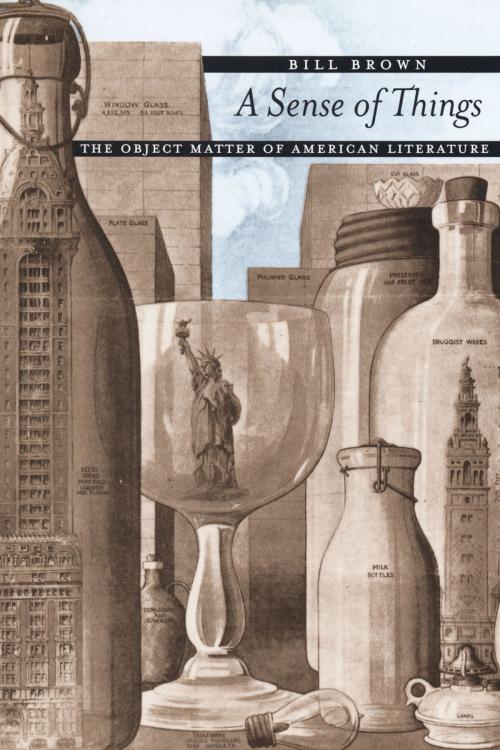A Sense of Things
The Object Matter of American Literature
Fiction & Literature, Literary Theory & Criticism, American| Author: | Bill Brown | ISBN: | 9780226076317 |
| Publisher: | University of Chicago Press | Publication: | December 28, 2010 |
| Imprint: | University of Chicago Press | Language: | English |
| Author: | Bill Brown |
| ISBN: | 9780226076317 |
| Publisher: | University of Chicago Press |
| Publication: | December 28, 2010 |
| Imprint: | University of Chicago Press |
| Language: | English |
In May 1906, the Atlantic Monthly commented that Americans live not merely in an age of things, but under the tyranny of them, and that in our relentless effort to sell, purchase, and accumulate things, we do not possess them as much as they possess us. For Bill Brown, the tale of that possession is something stranger than the history of a culture of consumption. It is the story of Americans using things to think about themselves.
Brown's captivating new study explores the roots of modern America's fascination with things and the problem that objects posed for American literature at the turn of the century. This was an era when the invention, production, distribution, and consumption of things suddenly came to define a national culture. Brown shows how crucial novels of the time made things not a solution to problems, but problems in their own right. Writers such as Mark Twain, Frank Norris, Sarah Orne Jewett, and Henry James ask why and how we use objects to make meaning, to make or remake ourselves, to organize our anxieties and affections, to sublimate our fears, and to shape our wildest dreams. Offering a remarkably new way to think about materialism, A Sense of Things will be essential reading for anyone interested in American literature and culture.
In May 1906, the Atlantic Monthly commented that Americans live not merely in an age of things, but under the tyranny of them, and that in our relentless effort to sell, purchase, and accumulate things, we do not possess them as much as they possess us. For Bill Brown, the tale of that possession is something stranger than the history of a culture of consumption. It is the story of Americans using things to think about themselves.
Brown's captivating new study explores the roots of modern America's fascination with things and the problem that objects posed for American literature at the turn of the century. This was an era when the invention, production, distribution, and consumption of things suddenly came to define a national culture. Brown shows how crucial novels of the time made things not a solution to problems, but problems in their own right. Writers such as Mark Twain, Frank Norris, Sarah Orne Jewett, and Henry James ask why and how we use objects to make meaning, to make or remake ourselves, to organize our anxieties and affections, to sublimate our fears, and to shape our wildest dreams. Offering a remarkably new way to think about materialism, A Sense of Things will be essential reading for anyone interested in American literature and culture.















